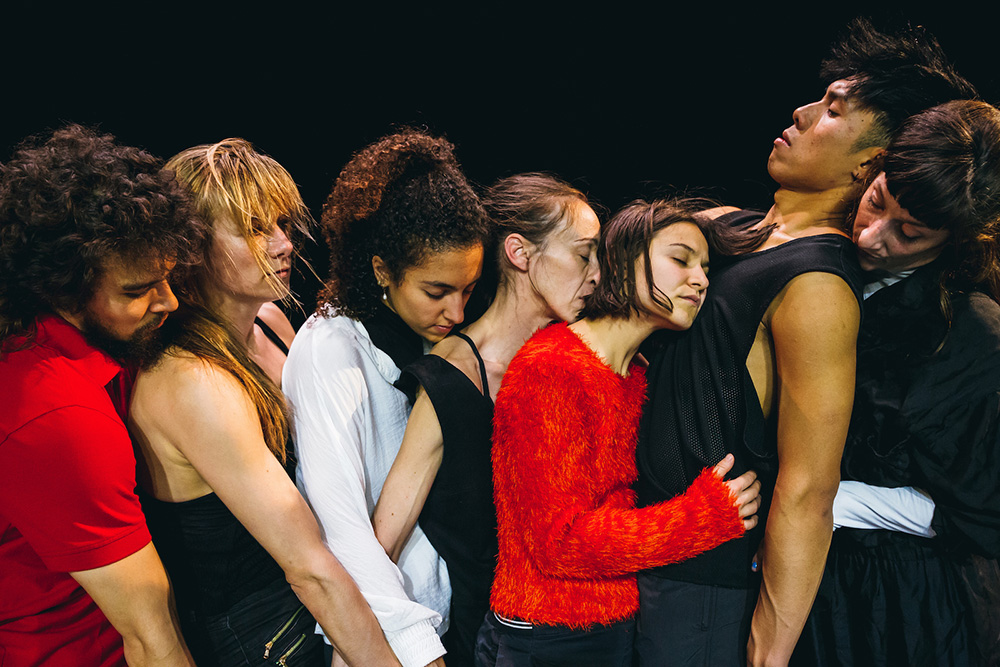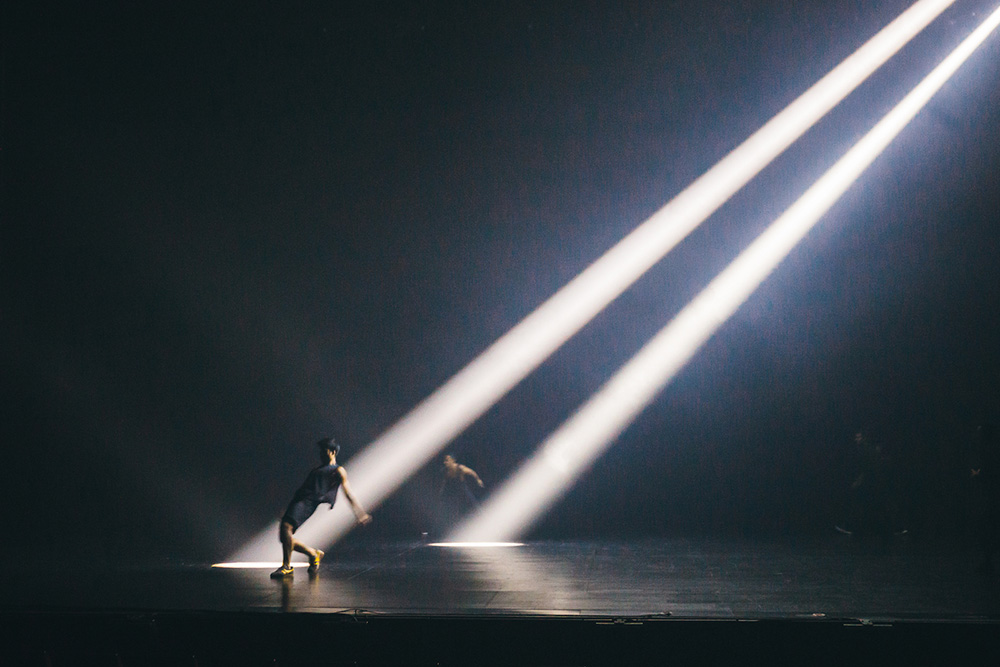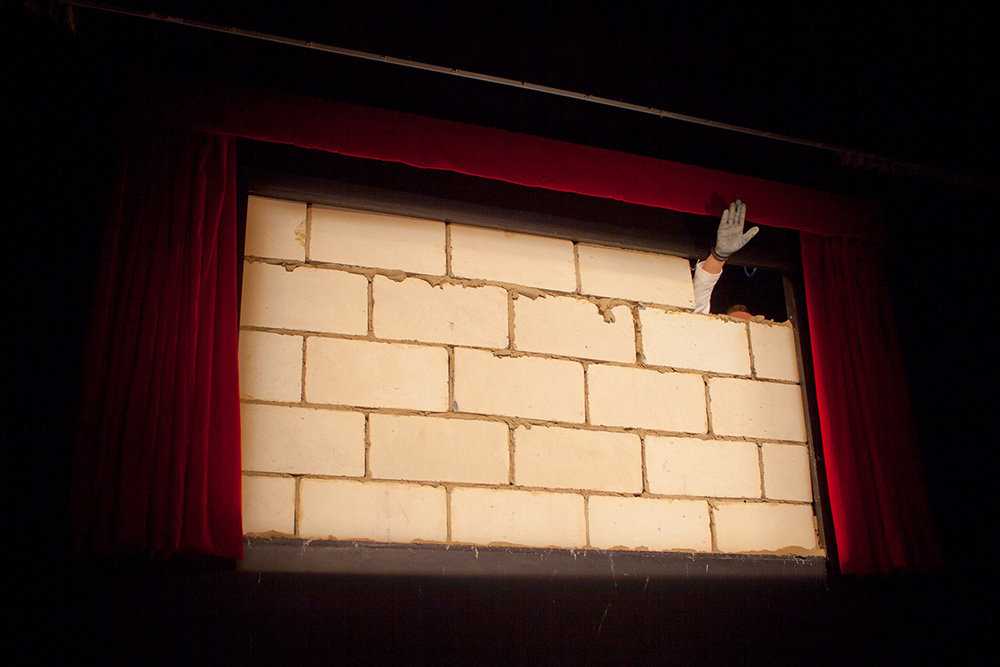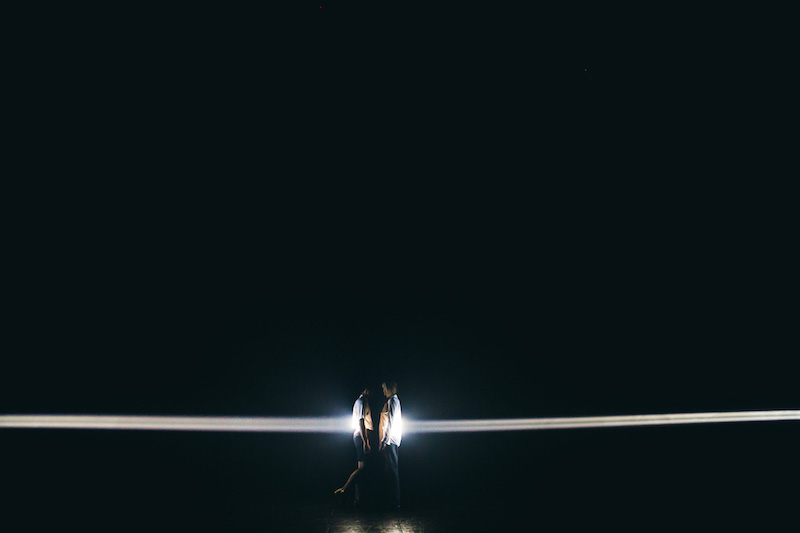The 2020 PuSh Festival in Vancouver is nigh. In its 16th edition and under new leadership, PuSh continues to topple preconceptions of what live shows can encompass. From Jan. 21 to Feb. 9 in venues across the city, hybrid works of music, dance, theatre and occasionally uncategorizable mixtures of all three take place.
This year’s roster boasts an impressive number of women artists, a veritable estrogen army of Canadian and international performers. And while the programming spans the breadth and depths of contemporary performance, some of the most startling work comes from women in their 50s.
Choreographer Dana Gingras (Canada) and performance artist Ursula Martinez (U.K.) are two such creators, entering their fifth decades but firing on all cylinders.
Gingras’s company Animals of Distinction brings its large-scale work Frontera to the Queen Elizabeth Theatre for a single performance on Jan. 30. Gingras’s previous work Monumental, created with the Holy Body Tattoo dance company and the band Godspeed You! Black Emperor, rattled the roof of the venerable theatre at the 2016 PuSh Festival. Expectations are high for this new work, which features music from Montreal’s Fly Pan Am and scenography from United Visual Artists.
I’ve known Gingras for many years, dating back to the early 1990s when she, Noam Gagnon and Jean-Yves Théricault co-founded the Holy Body Tattoo. I remember the first time I saw them at the Vancouver East Cultural Centre. In one corner of the stage, an enormous bag of sand was suspended from the roof. A sibilant twisting rope of sand coiled its way to the floor, while Gingras and Gagnon, accompanied by Théricault on the drums, engaged in mutually punishing, obliterating movement that seemed bound to end in bloody damage. It was a show that you felt in your gut, percussive, thunderous and a little bit terrifying. The audience emerged from the theatre visibly shaken, like they’d just witnessed a mugging.
More than two decades later, Gingras is still making combustive work that explodes the very idea of performance and collaboration.
On the eve of Frontera’s first major tour I reached Gingras in Montreal, as she prepared to fly to Sydney, Australia. Any tour comes with its fair share of problem solving, even before a catastrophe like an entire continent catching on fire. But if anyone can charge into the flames, it’s Gingras. The woman can orchestrate massive performance pieces, make films, embrace new technologies like motion capture and 3D, and still make it all look smooth and manageable.
So how does she feel about this new creation? “It’s been a whirlwind. Ten dancers, four musicians, a tech team. It’s a big production, 20 people, so the logistics are intense,” she says.

The work was created as part of Gingras’s long-term residency at the Centre de Création O Vertigo in Montreal. “The residency gave us a roof over our heads and allowed us to produce the piece. Fortuitous things came together and aligned. We had our premiere in November, with an additional four shows in Montreal.”
The tour is a new chapter for the piece. After the performances in Sydney, Frontera travels to Berlin and Vancouver, before rounding up things in Ottawa at the National Arts Centre.
This kind of travel isn’t unusual for Gingras. Even before the Holy Body Tattoo circumnavigated the globe a few times, she was very much a citizen of the world. Born on Canada’s West Coast, Gingras moved to Argentina as a child, then to the U.K., back to Vancouver, before finally calling Montreal home.
In its exploration of borders Frontera is something of a personal work, coming out of Gingras’s own sense of displacement and dislocation, exploring what it means to be uprooted and forced to figure out where you belong.
“I’ve always been interested in the outside edges, in liminal spaces,” she says. Even in the early days of the Holy Body Tattoo, when making dance out of pedestrian movement was a thumb in the eye of the monoculture of Canadian dance, Gingras was used to being viewed as an outsider. The Holy Body made active use of their status as enfants terribles, collaborating with some of the most interesting artists, musicians and designers around, from William Gibson to Jenny Holzer to the Tiger Lillies.

Gingras has continued this kind of collaboration with her own company, Animals of Distinction. During the creation process for Frontera, this meant giving the dancers responsibility and agency, as well as maintaining a tight partnership with the band.
She says in Frontera the concepts of borders, surveillance culture and the fundamental disruption that they contain are reflected in the movement as well as the way the work is structured.
The rigours of international touring also require that the work travel efficiently.
“I was very much concerned with the ecological making of work, how to make it practical,” she says. In this aspect, the role of scenography (from the U.K.’s United Artists) was critical with its implicit references to walls, borders and other physical structure created through light. It makes for a series of porous frontiers.
A world away from a large-scale epic like Frontera is the one-woman performance work of Ursula Martinez. Martinez has only her body, wit and, in the case of Free Admission, trowel, bricks and a pile of wet mortar to make an impact on her audience.
Like many of the women featured in the PuSh Festival, Martinez defies easy categorization, flitting from cabaret-style shows to more esoteric stuff that straddles the border between comedy, theatre and burlesque.
On the phone from the U.K., she admits that it’s her first time performing in Vancouver and asks what Canadian audiences are like. I have to think about it for a moment. A little conservative, perhaps, but also wanting somehow to be freed from their restraints, set loose to enjoy cathartic release.
Martinez is just the woman to do this. Her career spans many different species of provocation, from taking her elderly (and quite naked) parents on stage in A Family Outing to getting her own kit off in works like Hanky Panky, which involves a strip tease and a little red handkerchief.
When a video of Hanky Panky was uploaded to the internet without Martinez’s knowledge or consent, the result was a barrage of email. Some were funny, others a bit more disturbing (you can imagine). The experience formed the basis of her subsequent work, My Stories, Your Emails.
A quick internet search turns up the Hanky Panky video, but the thing that’s most striking isn’t the sexy stuff but how incredibly sweet it is. A large part of the warmth comes from the obvious delight and joy that the audience shares with Martinez. As she moves through the crowd, an electric current of goodwill lights up people’s faces, like someone lit a candle behind their eyes. It’s the instant rapport that only live performance can offer.
Free Admission was created in 2016, and I ask Martinez if it’s strange to return to a personal work after several years. “The show is structured as a series of curated anecdotes, so there’s the freedom to add and remove, some room for change as new meanings evolve,” she says.
A case in point is the brick wall that Martinez constructs during the performance. “When the work was created, Trump hadn’t started his wall between the U.S. and Mexico,” she says.
The wall metaphor is also a gentle poke at the fourth wall of the theatrical experience. Normally, performers are breaking down the fabled fourth wall, but in this case the artist busily builds one, brick by brick.
In order to learn basic masonry skills, Martinez attended a weekend workshop, as she explained in an interview with the Guardian: “Saturday mornings in south London, me and 15 other 40-something, slightly balding, slightly overweight, suburban heterosexual men looking to put a Barbie in their back gardens... I didn’t have the courage to tell them why I was there.”
Does she ever worry about deeply mining her own life and experience? And given the unpredictable nature of the internet age, how does she decide which parts of herself to share and which to shield?

“It’s a bit strategic. I’ve always been a bit of an over-sharer in my own life,” she says. “The personal is a starting point. I want to make work about things I know and understand, and I’m an expert in myself.”
In a cultural moment when everyone is actively seeking attention, does being a provocateur get harder? “[These are] narcissist, attention-seeking times, but I like to think my work is more than just me, me, me. I explore issues accessible to wider audiences. Really, it’s just about being human.”
Still, she admits that the impulse to continually push the boundaries gets harder as you age.
In one of Martinez’s recent works, Wild Bore, she and fellow-performers Zoe Coombs Marr and Adrienne Truscott broke the first rule of the theatre world and responded to bad reviews of their work by literally talking out of their asses.
When the piece was presented in New York, the three participated in a panel discussion about the different ways female and male artists approach comic material. Truscott said women tend to circle around stories, as opposed to the setup and delivery of male comedians, which tend towards more ejaculatory punchlines. “We make cunt art,” she says.
Being reminded of the story brings a volley of laughter from Martinez. We return to the issue of how context can radically change how a work is perceived.
“A late night crowd is very different from the 7:30 p.m. theatre-going audience. I have to shout louder at 2 a.m.” Martinez cut her performer’s teeth in the late-night cabaret world where folks were boozed up and loud, and she knows how to contend with the different audiences. That being said, she admits that a stuffy old theatre crowd that’s too cool for school can be as much a challenge.
Since the time of Martinez’s first full-frontal creations, troll culture has intensified, but she is philosophical about the evolving nature of human expression, both good and bad.
“The awareness in the post #MeToo movement has provided women with a form of shorthand. Language has changed — manspreading, mansplaining, those terms didn’t exist 10 years ago. They’re shortcuts to explain culture.”
At age 53, the idea of taking off one’s clothes on stage takes on an entirely new kind of pressure, she says. “I used to think in my 30s that it was a real act of rebellion, but in my 50s, maybe it’s even more rebellious.” ![]()
Read more: Media
















Tyee Commenting Guidelines
Comments that violate guidelines risk being deleted, and violations may result in a temporary or permanent user ban. Maintain the spirit of good conversation to stay in the discussion.
*Please note The Tyee is not a forum for spreading misinformation about COVID-19, denying its existence or minimizing its risk to public health.
Do:
Do not: